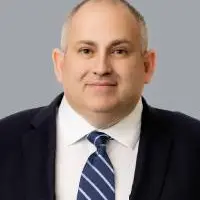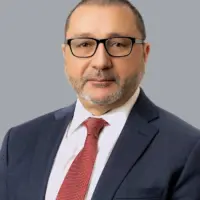About Gateway Foundation
Gateway Foundation in Dallas, Texas, was a 300 bed community corrections facility that provided substance use disorder and co-occurring disorder treatment for men and women. The two programs that were used to treat clients at this facility were the Cognitive Behavioral Substance Abuse Treatment Program and the Dual Diagnosis Center.
Individuals in the Cognitive Behavioral treatment program would participate in a 120 day intensive residential program and then 60 days of supportive residential treatment. As a part of the residential treatment clients would participate in group sessions, individual counseling and family meetings. Group counseling can benefit clients by reducing isolation and providing social support from peers. It was also an opportunity for clients to practice recovery oriented coping strategies.
In individual counseling, counselors would help clients stay on track with their treatment goals and better understand their addiction. Counselors would likely use evidence based practices such as cognitive behavioral therapy to help clients change negative thoughts and beliefs that were contributing to substance use. In addition to counseling, the staff would also provide education modules and outside support services.
One of the facility’s standout features was the Dual Diagnosis Center. It specialized in treating individuals with a co-occurring mental health and substance use diagnosis. Clients would receive a combination of treatment services for substance use disorder and mental health overlay services.
One of the top goals of these programs was to help clients develop skills and behaviors to enable them to live a substance free and crime free life. Additional goals that the facility set out for clients to achieve included eliminating antisocial behavior and developing support systems for continual growth and recovery.
Rehab Score
Other Forms of Payment
Medicaid is a state based program that helps lower-income individuals and families pay for healthcare. Medicaid covers addiction treatment so those enrolled can use their coverage to pay for rehab. When a program accepts Medicaid the client often pays very little or nothing out of their own pocket.
Addiction Treatments
Treatments
The goal of treatment for alcoholism is abstinence. Those with poor social support, poor motivation, or psychiatric disorders tend to relapse within a few years of treatment. For these people, success is measured by longer periods of abstinence, reduced use of alcohol, better health, and improved social functioning. Recovery and Maintenance are usually based on 12 step programs and AA meetings.
During rehab in Texas, you'll deal with underlying issues that contribute to addiction. By addressing these challenges and learning healthy ways to cope with them, you'll develop strategies that help you live a drug-free lifestyle.
Opioid rehabs specialize in supporting those recovering from opioid addiction. They treat those suffering from addiction to illegal opioids like heroin, as well as prescription drugs like oxycodone. These centers typically combine both physical as well as mental and emotional support to help stop addiction. Physical support often includes medical detox and subsequent medical support (including medication), and mental support includes in-depth therapy to address the underlying causes of addiction.
Substance rehabs focus on helping individuals recover from substance abuse, including alcohol and drug addiction (both illegal and prescription drugs). They often include the opportunity to engage in both individual as well as group therapy.
Clinical Services
In individual therapy, a patient meets one-on-one with a trained psychologist or counselor. Therapy is a pivotal part of effective substance abuse treatment, as it often covers root causes of addiction, including challenges faced by the patient in their social, family, and work/school life.
Staff

Jeremy Klemanski, MBA
CEO

Tomas Del Rio
CFO

Roueen Rafeyan, MD
CMO

Alex Zozulia
CIO
Contact Information
723 South Peak street
#2
Dallas, TX 75223




